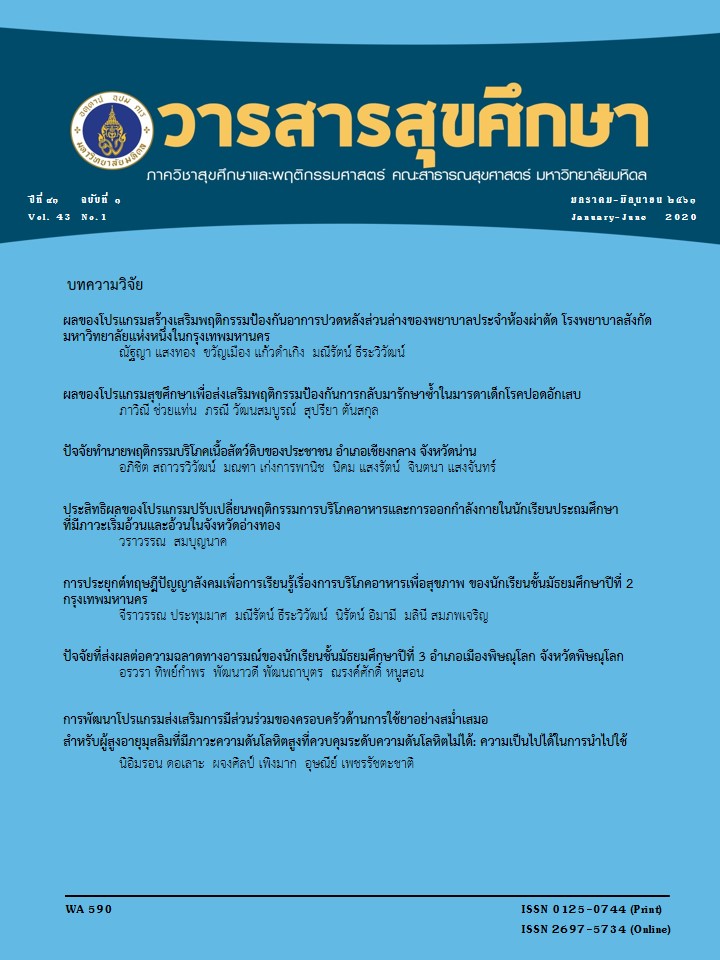Effects of Health Promotion Program on Low Back Pain Preventive Behavior of Operative Nurses at a University Hospital, Bangkok
Keywords:
Health promotion program for preventing low back pain, Perceived self-efficacy, Operating room staffAbstract
This quasi-experimental research aimed to study the effects of a health promotion on low back pain preventive behavior applying self-efficacy theory. The samples were 75 operating room nurses, 38 in the experimental group, and 37 in the comparison group. The experimental group participated in the program composed of educational activities for enhancing knowledge about low back pain symptoms, practices, and exercise for preventing low back pain. Five health education sessions were organized, and the program lasted for 6 weeks. After practicing the exercise, the samples were motivated through a social media 3 times. Data collection was done before and after the program by using a set of questionnaire. Data analysis was done by using descriptive statistics and Chi-square, Independent t-test, and Paired t-test were used for testing the difference between variables.
The results showed that after the experimentation, the experimental group had significantly higher levels of knowledge, perceived self-efficacy, outcome expectation of the benefits from low back pain preventive behavior, and had significantly decreased low back pain compared to the comparison groups (p<0.001). Thus, the health promotion program for low back pain prevention applying the self-efficacy theory was effective in modifying low back pain prevention behavior.



